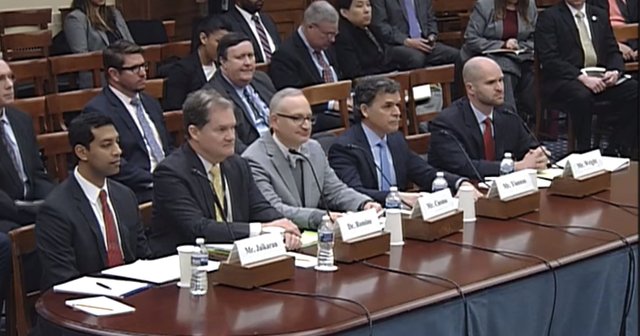In the United States will create sub-committees for the regulation of cryptocurrencies and blockchain

On Wednesday, February 14, the technological Advisory Committee of the commodity futures trading Commission (CFTC) held a meeting on cryptocurrency, blockchain and regulation. The meeting was attended by representatives of both the public and private sectors, and participants mainly asked questions on market regulation and government participation in technology development.
Even before the break, the Committee approved the creation of two subcommittees, one of which will be devoted to cryptocurrencies, and the other — to the wider application of blockchain technology in the field of Finance.
The meeting was attended by Brian Quintens, who called for self-regulation of the industry last week, during the Yahoo Finance crypto summit in new York. Speaking about the results of the meeting of sec and CFTC chairmen Jay Clayton and J. Christopher Giancarlo, who did not report on the timing of full regulation and referred to the "evolving nature" of the market, Quintens urged not to wait for the Congress and create a self-regulatory organization, following the example of the financial services industry regulation Service (FINRA) and the national futures Association (NFA). During yesterday's meeting, he said:"CFTC should not try to evaluate which of the new products are useful and which are not — it is necessary to decide the markets, investors and consumers for themselves."
Several participants in the meeting, including CFTC commissioners, expressed confidence that regulation was necessary to implement evolving technology into the financial sector. Dan Buska, CFTC Deputy Director for market surveillance, holds this position in particular: "an Attempt to settle the system" retroactively" is often costly and does not correspond to realities, " he commented. Busk also suggested that blockchain can be a tool in the hands of regulators who will manage their own nodes and receive information in real time: "the development of distributed registry technology will allow regulators to easily access data every time a transaction is made on a certain blockchain, without the participation of intermediaries." According to him, this will make CFTC "more agile and effective."
Members of the Committee representing the private sector expressed mixed views on what role the government should play in regulating the industry. Charlie Cooper, managing Director of R3 FINTECH, called for greater control: "We want to ask that US regulators and members of government agencies be more active than they are now. There are governments around the world that are ahead of the us, and that is our concern." Brian knight, a senior researcher at the Mercatus center at George Mason University, on the contrary, expressed concern about the growing role of regulators and said that this could lead to problems.
The final decision of CFTC to create separate subcommittees on cryptocurrencies and blockchain is aimed at maintaining constant control over the industry, which will "transform trading, markets and the entire global financial system".